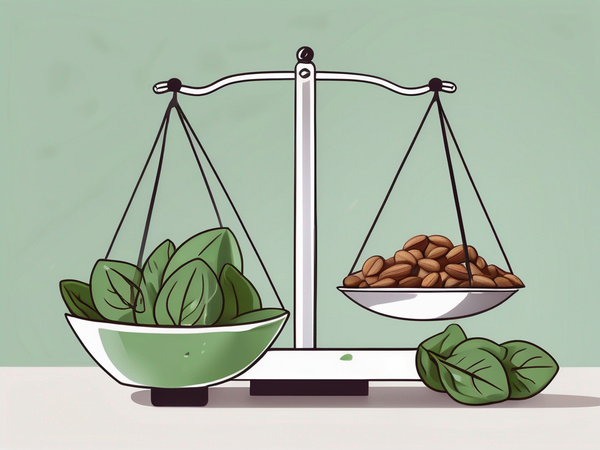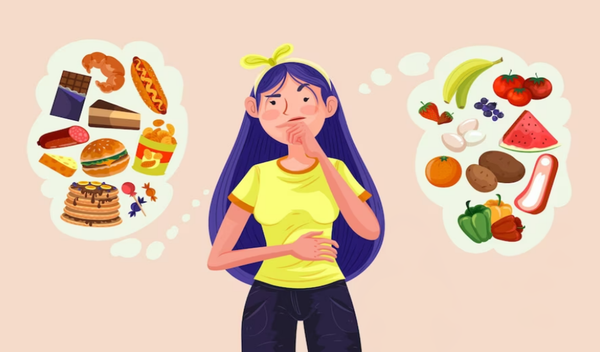We live in the age of social media where people flaunt magazine cover-worthy, hour-glass or perfect V shape bodies all the time. It is natural to desire the same for oneself and thus begin the journey to weight loss.
Reaching your ideal weight and sculpting your body would require effort and time. However, some people wish to achieve weight loss in the short term. Often people hit the gym and begin watching their diet to shrink a few inches before their or a loved one’s wedding. Weight loss is easily achievable if one is determined but the question is whether the weight loss achieved is sustainable.
So what is the correct approach to weight loss – short term or long term ?
Let's get to know more.
Short-Term Weight Loss
Short-term weight loss can be defined as a quick form of weight loss wherein a person loses 1 kg weight every week with help of bouts of high intensity workouts, no-carb, high-protein diets, intermittent fasting, and the like. Such rapid weight loss may require a calorie deficit, which means consuming a low-calorie-diet that provides much fewer calories than what is normally required by an individual. Some people go for short-term weight loss to control conditions like obesity, diabetes, high cholesterol and high blood pressure. However, studies show that the weight lost quickly has greater chances of returning promptly too.
The reason behind this return of weight is the hormonal response of the body to the stress laid on it. The hormones slow down the weight loss process over a period of time and the weight gain occurs when the diet is stopped or relaxed.
Pros & Cons
Losing weight in the short term may involve going on a low-calorie-diet, restricted eating plan, fad diets and fat-burning supplements. The visible takeaway of short-term weight loss is indeed the quick image makeover. Fitting into your old skinny jeans could be a big reward in return for the route taken to achieve it. Also in a way it ushers in the start of being weight conscious and experiencing parts of the journey. Medically it can provide relief to persons who are advised to take immediate action on managing weight and obesity.
Having said that, it is still not a sustainable way of approaching weight loss as it may cause mild to severe side-effects. Fatigue, dizziness, nausea, headache, muscle loss, constipation, hair loss and irregular menstruation are some of the health implications people have on short-term weight loss experience. Also the happiness derived from losing a few kilos and reducing the waist circumference by a few inches may be short-lived. As the restrictions imposed during short-term weight loss are so unrealistic and difficult to sustain that once the person is off the regimen the body boosts its production of hunger-inducing hormones when it senses it has lost fat and muscle, which leads to bigger cravings and eventually weight gain.
Long-Term Weight Loss
Adaptation to healthy behaviour, which includes consuming nutritious whole foods, daily exercise, monitoring weight and avoiding all kinds of unhealthy fats, sugars and processed carbohydrates to maintain weight loss is a long-term approach that is considered more sustainable. It is a consistent lifestyle change that people bring in their daily routine. These changes comprise areas such as meal structure, eating behaviour, food shopping, calorie counting, alcohol consumption, exercise, stress management, sleep, leisure activities, and vacation.
Long-term weight loss may be defined as a commitment with oneself to lead a healthy and active life, which sustainably leads to ideal weight management. However, it is not an easy lifestyle to maintain for many of us.
Pros & Cons
Health experts have validated the sustainability of long-term weight loss and often cite the beneficial impact it has on maintaining overall health. It is a way to integrate healthy behaviours with your daily lifestyle. But people who wish to see quick makeovers by weight loss may find it a lengthy and slow result-yielding process. This delay can demotivate some from following a restrictive routine, curbing indulgences and keeping a watch on calorie intake most of the time. Though long-term weight loss is an ideal way to remain physically fit and provide optimum nutrition to the body, it may not be an easy road taken but surely a path that leads to ideal weight and optimum health.
How can you naturally achieve weight-loss ?
One must vary from buying supplements that claim to make you shed weight rapidly and make you slim, then you must surely investigate deeper into the ingredients of the product. Usually such products have artificial ingredients and chemical compositions that may harm your body and lead to serious complications like kidney and liver problems, heart issues, agitation and sleeplessness.
Research on natural foods and nutrients that aid weight loss has been amply done and the role of natural fat burners in maintaining body weight is validated with scientific evidence. When planning a long-term weight loss regimen we recommend natural 100% plant-based formulas that contain natural ingredients that are traditionally known to aid weight loss and improve metabolism .
Wellbeing Nutrition offers some scientifically-developed high-quality natural supplements that support weight loss naturally. BURN SLOW, is the best fat burner for weight loss. It is the first plant-based formula uniquely designed to stimulate & aid in weight loss. With a 100% plant-based combination of l-carnitine, natural caffeine from coffee beans & chromium helps burn fat, gain lean muscle, boost metabolism, control hunger, & utilize fat for energy. Delayed-release technology is designed to release slowly over 8 hours, in the absorptive, less sensitive areas of your gut to ensure maximum bioavailability of the nutrients.
To fill any nutritional gaps in your daily diet during your weight-loss journey,
you can consume Daily Greens, which packs nuutrition from 39 farm-fresh & organic greens, fruits & veggies that deliver 100% RDA of all your multivitamins & minerals in an effervescent-dissolving tablet. Daily Greens is a potent detoxifying supplement that boosts digestive enzymes and aids in weight loss.
You can even consider prepping your digestive system before every meal with a glass of Wellbeing Nutrition’s Apple Cider Vinegar with Garcinia Cambogia and Pomegranate. Garcinia Cambogia is one of nature's best cravings suppressants. This formulation controls hunger pangs and appetite while also blocking fat production. Take one tablet a day regularly, combined with a balanced diet and exercise for visible weight loss results.
Weight loss is part of weight management, but not the whole thing! One should always consider a holistic approach towards health and strive for achieving an equilibrium, which can only be achieved with a long-term consistent lifestyle and healthy eating habits. The key of weight-loss lies in staying motivated and understanding your body’s composition, nutritional requirements and doing the right things every day !
Reference:
Ashtary-Larky, Damoon et al. “Rapid Weight Loss vs. Slow Weight Loss: Which is More Effective on Body Composition and Metabolic Risk Factors?.” International journal of endocrinology and metabolism vol. 15,3 e13249. 17 May. 2017, doi:10.5812/ijem.13249
Fischer, M., Oberänder, N., & Weimann, A. (2020). Long-Term Weight Loss Maintenance. In (Ed.), Weight Management. IntechOpen. https://doi.org/10.5772/intechopen.92103
Askarpour M, Hadi A, Miraghajani M, Symonds ME, Sheikhi A, Ghaedi E. Beneficial effects of l-carnitine supplementation for weight management in overweight and obese adults: An updated systematic review and dose-response meta-analysis of randomized controlled trials. Pharmacol Res. 2020;151:104554. doi:10.1016/j.phrs.2019.104554
Maia-Landim, Andrea et al. “Long-term effects of Garcinia cambogia/Glucomannan on weight loss in people with obesity, PLIN4, FTO and Trp64Arg polymorphisms.” BMC complementary and alternative medicine vol. 18,1 26. 24 Jan. 2018, doi:10.1186/s12906-018-2099-7

























